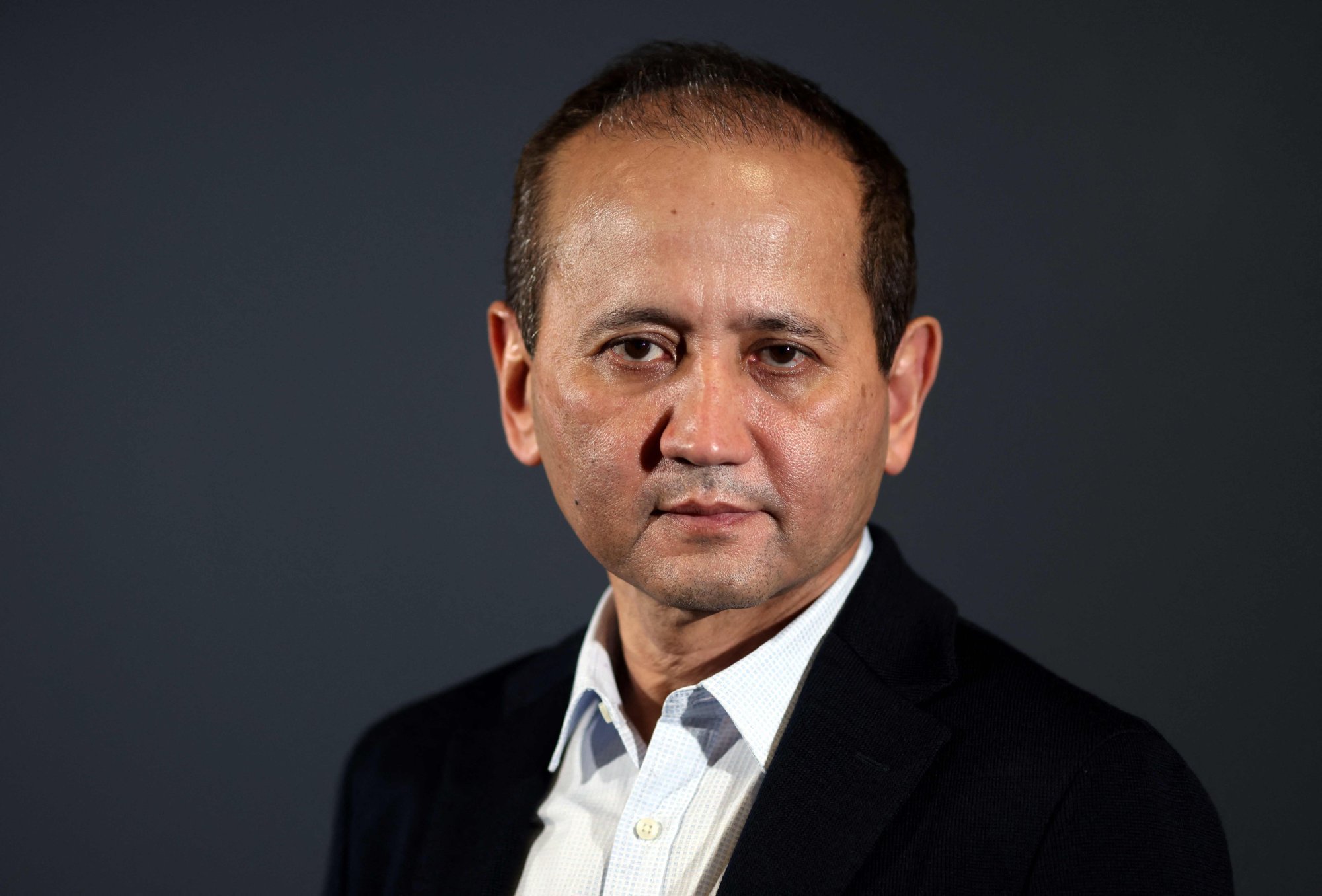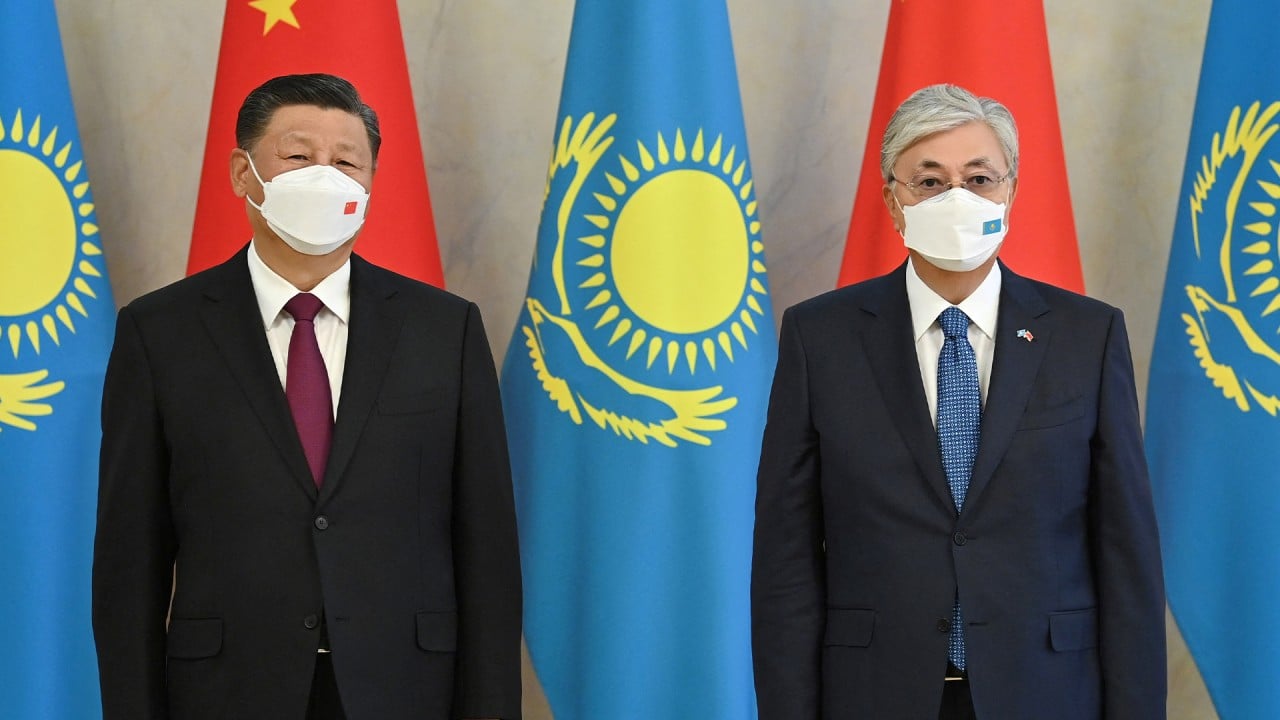
Incumbent Kassym-Jomart Tokayev clear winner in Kazakh presidential election
- Three exit polls gave Tokayev, who faced no real opposition, between 82.2 per cent and 85.5 per cent of the votes cast in the former Soviet republic
- Tokayev showed a ruthless side earlier in the year by violently suppressing protests after Kazakhstan sank into chaos over high living costs
Kazakhstan’s incumbent leader Kassym-Jomart Tokayev appeared to be heading for a landslide victory in a snap presidential election in Central Asia’s largest country, months after deadly unrest.
The 69-year-old, who came to power in 2019, received 81.31 per cent of the vote in Sunday’s election, the oil-rich nation’s electoral commission said on Monday. Three exit polls had given Tokayev between 82.2 per cent and 85.5 per cent of the popular vote, a widely expected result given there was no real opposition on the ballot.
Despite posters calling on voters to “make their choice” for the next seven years, Tokayev’s five opponents were little more than stooges.

The runner-up to Tokayev had managed just 5.2 per cent of the vote, according to the exit polls.
The electoral commission gave an estimated turnout of 69 per cent among the 12 million eligible voters.
“The people have clearly expressed their confidence in me and we have to justify it,” 69-year-old Tokayev said as the results emerged.
Rich in natural resources and located at the crossroads of important trade routes, Kazakhstan sank into chaos during protests over high living costs in January, which left 238 dead.
100,000 Russians flee to Kazakhstan amid military draft
Tokayev – once a steady hand, if generally considered lacking charisma – showed a ruthless side earlier this year by violently suppressing protests.
While Kazakhstan has since stabilised, tensions persist, as shown by the arrest on Thursday of seven opposition supporters accused of an attempted coup.
Police on Sunday detained around 15 protesters demanding free and fair elections in the country’s largest city Almaty, Agence France-Presse journalists witnessed.
An interior ministry spokesman confirmed the figure to Agence France-Presse.
Sunday’s election was a chance for Tokayev to consolidate his grip on power.
Hoping to turn over a new leaf after a turbulent year, Tokayev had said he was seeking a “new mandate of trust from the people” in this election.
After voting early on Sunday in the capital Nur-Sultan, previously known as Astana, he said “the main thing is that there is no monopoly of power”.
Journalists saw voters taking selfies in front of the polling stations in Astana and the economic hub of Almaty.
Many said they would be “required” to show such photos when they returned to work on Monday.
Critics are still sidelined and all five of Tokayev’s competitors are virtually unknown.

This left 19-year-old student Alya Bokechova thinking that going to the polls “would be a waste of time”.
“We already know who will win and we don’t know the other candidates,” she said.
Observers from the Organisation for Security and Cooperation in Europe (OSCE) criticised Kazakhstan’s failure to meet electoral recommendations, including “conditions of eligibility and registration of candidates”.
But Tokayev’s promises of democratic and economic reforms resonate with some voters.
Voting for Tokayev, police officer Nurlan N said: “Since independence 30 years ago, almost nothing changed, I would like to see some significant changes.”
Chinese vice-president heads to Kazakhstan, and may miss party congress
Casting her ballot in Almaty, 68-year-old pensioner Murzada Massalina said: “Tokayev is the suitable candidate because he has a lot of experience.”
Tokayev came to power in 2019 after winning 70 per cent of the vote in an election whose outcome was inevitable after he obtained the backing of former ruler Nursultan Nazarbayev.
For the following two-and-a-half years, he played a role of loyal protégé.
But that changed after protests erupted in January and Tokayev ordered police to “shoot to kill” demonstrators.
Tokayev then distanced himself from his former mentor Nazarbayev, purged his clan from positions of authority and promised a “new and just Kazakhstan”.
He announced reforms, a constitutional referendum and introduced single presidential terms of seven years.

Nazarbayev, who led Kazakhstan for three decades, was the first to congratulate Tokayev on his re-election. It was, he said, “unquestionable proof of the people’s unshakeable faith in (his) reforms”.
Nazarbayev praised his attitude “at critical times” for the country, a reference to the events earlier this year.
Tokayev also stood up to Russian President Vladimir Putin, as Moscow’s invasion of Ukraine shocked former Soviet republics.
The offensive reawakened Kazakh concerns that Moscow may have ambitions on the north of the country, home to three million ethnic Russians.

In response, Tokayev strengthened his country’s ties not only with China, but also with Europe.
The leaders of Turkey and China visited Kazakhstan, as did high-ranking European officials and Pope Francis just this year.
Tokayev clashed with Putin on a visit to Saint Petersburg in June.
Moscow’s move to recognise Ukrainian separatist regions – that it has since claimed to annex – would “lead to chaos”, he said.

.png?itok=arIb17P0)
